On July 20, Iran and the United States reach a self-imposed deadline for reining in Iran’s nuclear weapons program.
With the Vienna negotiations over Iran’s nuclear activities making halting progress at best and a deadline looming, the Obama administration announced Thursday that Secretary of State John Kerry would fly here this weekend to assess whether a deal is possible — and perhaps to begin negotiating an extension in the talks that both sides said they had wanted to avoid.
Mr. Kerry will be joined by the foreign ministers of several, but probably not all, of the other nations engaged in the talks, which include Germany, Britain, France, China and Russia. Iran’s foreign minister, Mohammad Javad Zarif, has been here since July 2, as all sides have haggled over a deal that can not only be agreed upon among themselves, but also has a chance of satisfying Congress and the Iranian Revolutionary Guard Corps.
If Iran is actually serious about the negotiations this should be easy. Though Iran signed the Nuclear Non-Proliferation Treaty under the Shah, it has stipulated that it is still a treaty member and in 2003 signed additional protocols aimed at giving the international community increased access to its nuclear research.
Odds are, though, that July 20 will come and go without any measurable change in Iran’s position. Obama’s favored partner in dealing with Iran, Russia, has extricated itself from the talks and Russian Foreign Minister Sergei Lavrov will not be present at these key negotiations. Not surprisingly, the Chinese will also be absent.
Iran has stuck to “inadequate and unworkable” positions in nuclear talks with six world powers despite a looming deadline for a deal to end sanctions against Tehran in exchange for curbs on its atomic programme, a US official said on Saturday.
“We are very far apart on some issues,” including on uranium enrichment, the senior administration official told reporters, on condition of anonymity.
Another senior US official added that it was difficult to consider extending the negotiations with Iran beyond the 20 July deadline, without first seeing “significant progress on key issues” in negotiations between Iran and the United States, Britain, France, Germany, Russia and China.
As Winston Churchill said, “Jaw-jaw is better than war-war” but in this case it is difficult to see why Iran would make any further concessions. Iran has successfully split the nominal alliance seeking to thwart its nuclear ambitions, peeling off both Russia and China. Iran and Russia are allied militarily in Syria and Iraq making it very unlikely that the Russians are going to press the Iranians very hard. With the Russians and Chinese out of the picture, Iran could very well make the calculation that it can withstand any sanctions imposed by the remaining nations if it has the goodwill of Russia and China.
As a double sign of futility, the man the Iranians have sent to negotiate on their behalf can’t make a deal:
The Revolutionary Guard commanders harbor considerable suspicion that Mr. Zarif, who spent half his life in the United States and was educated there, could trade away what they view as the instruments of power that would restore Iran’s influence in the region.
Sometime this summer the ball will be back in Congress’s court on how to react to what, to a reasonably conscious person, would seem like an lack of good faith in the negotiations on the part of Iran even if another six-month deadline is agreed to by all parties. From Foreign Policy, an essay titled Take One for Tehran with the amusing but instructive subtitle of Why President Obama needs to stand up to the warmongers who want to kill the Iranian nuclear deal.
Barring an eleventh-hour miracle, negotiators in Vienna will not finalize a deal, and instead will have to agree to an extension, perhaps for another six months. As that moment approaches, President Barack Obama will be the target of howls of outrage from Congress, the Israel lobby, Israel itself, and Saudi Arabia — all of whom have been pushing the United States into confrontation with Iran.
…
Earlier this year, President Obama had to personally intervene to prevent Congress from imposing additional sanctions that would apply the second the six-month period lapsed. Now those naysayers, including Robert Menendez, chairman of the Senate Foreign Relations Committee, will say “We told you so,” and prepare a new round of punishments. Iranian President Hassan Rouhani and Foreign Minister Javad Zarif will come under equal pressure from their own hard-liners, including the supreme leader, to show that they have not been gulled by the devious West.Both sides understand the precariousness of the other’s position. “We’ve had very open discussions about the domestic political pressures,” says the P5+1 official. Mousavian said in an email exchange that Tehran will agree to extend the negotiations so long as the P5+1 does not demand additional concessions in order to do so. The Iranians know that the same is probably true of the United States. Secretary of State John Kerry is flying to Vienna this weekend in order to assess whether there’s enough forward progress to justify an extension.
In effect, each side needs to be able to reassure its hard-liners that success is possible and thus prevent them from throwing a monkey wrench into the process.
A continuation of sanctions or additional sanctions are by no means assured. Rand Paul has said that he is opposed to any containment of Iran to prevent it from acquiring nuclear weapons.
Asked Sunday about his 2012 vote against a bill that would have prevented a policy of containment — that is, allowing Iran to have nuclear weapons or nuclear weapons programs but keeping tabs on them — Paul said all options should be left on the table. (Paul was the lone vote against the legislation.)
That led some to say that the potential 2016 presidential candidate was open to a policy of containment — or, at the very least, that he wasn’t ruling it out.
He says in his new op-ed that he’s 100 percent against containment, but that the United States should never telegraph its moves or take options off the table…
What seems clear is:
- Iran is committed to obtaining a nuclear weapon.
- The Iranian negotiator is not trusted by significant power blocs inside the Iranian government.
- Russia has effectively changed sides in the negotiations and is now partnered with Iran.
- China seems to have pulled back from its partnership with the West.
- John Kerry is a moron and more likely to do lasting harm to our cause than good.
- Rand Paul doesn’t seem to think a nuclear Iran is a big deal.
All in all, it seems that the West has made the decision that it can live with a nuclear Iran mostly because it lacks the will to do anything about it. Given Iran’s demonstrated propensity for adventurism it is hard to see how this turns out well.
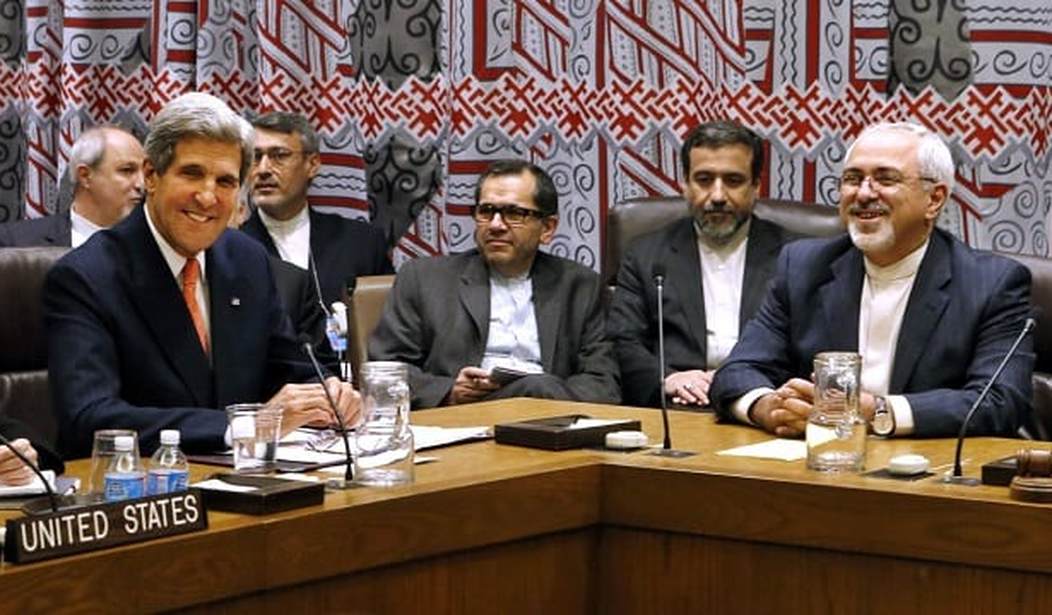
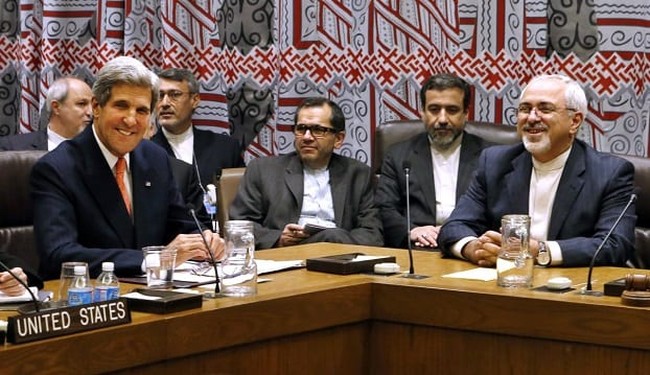
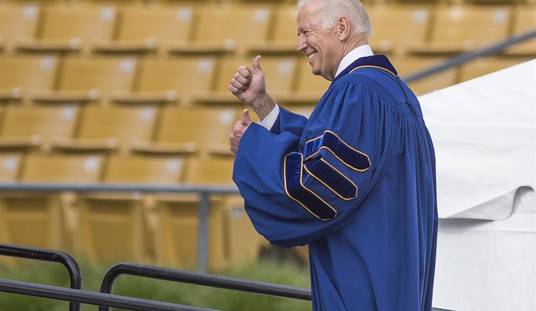


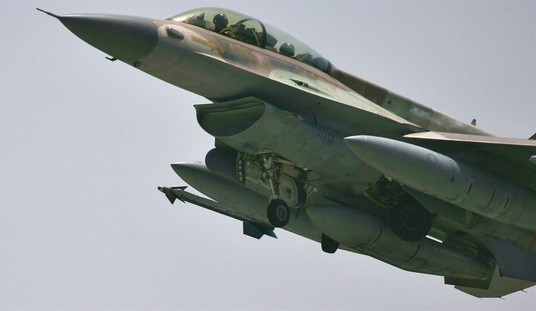
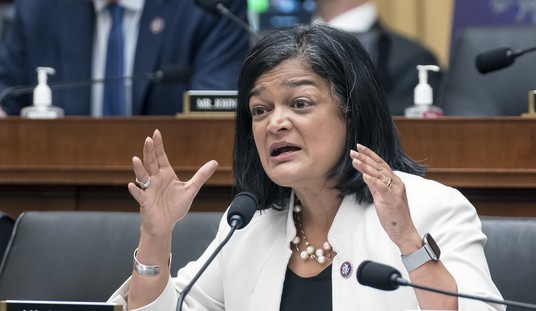



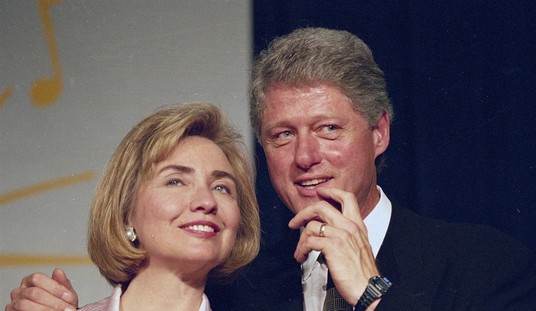
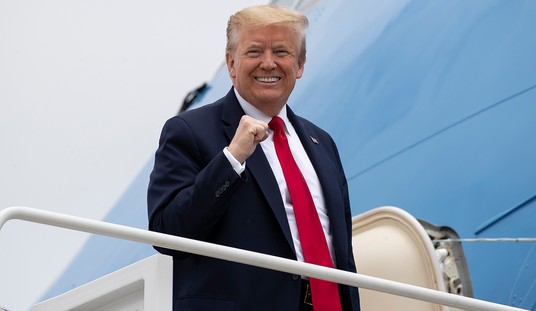
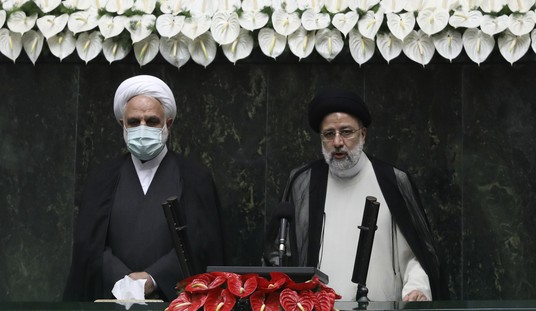

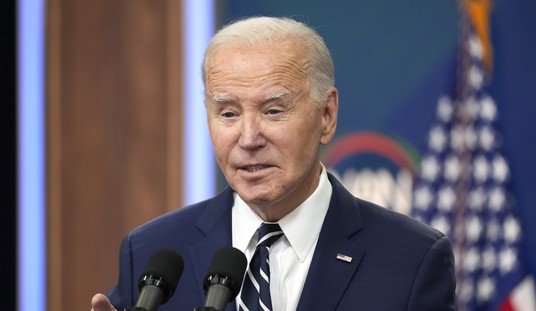
Join the conversation as a VIP Member